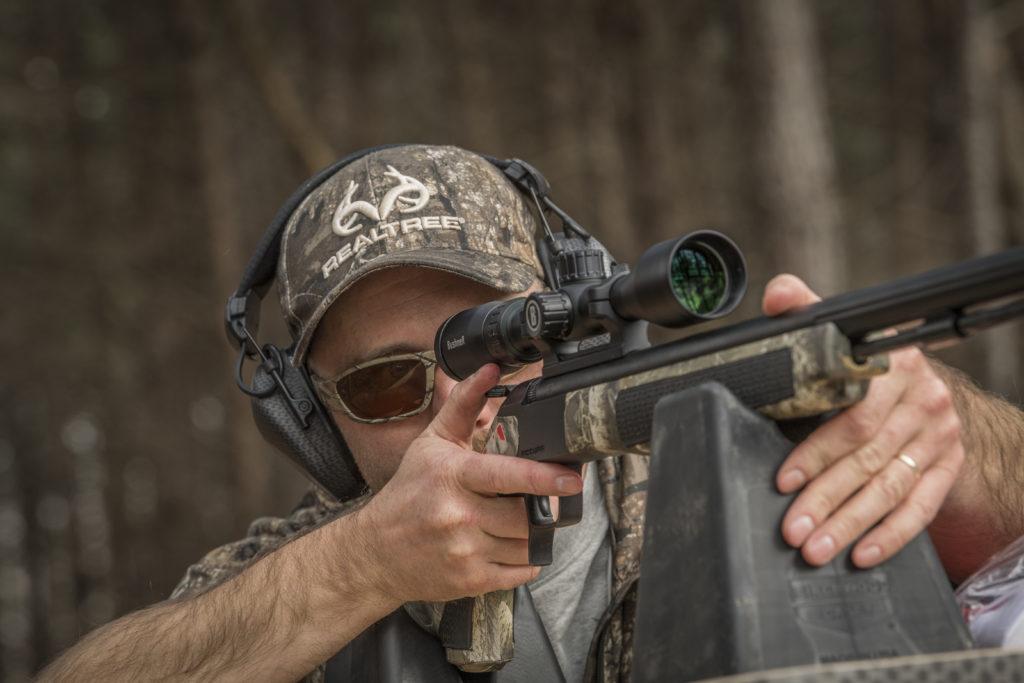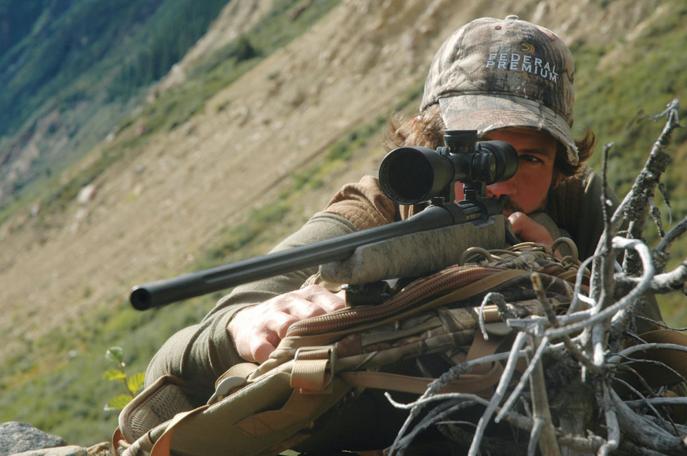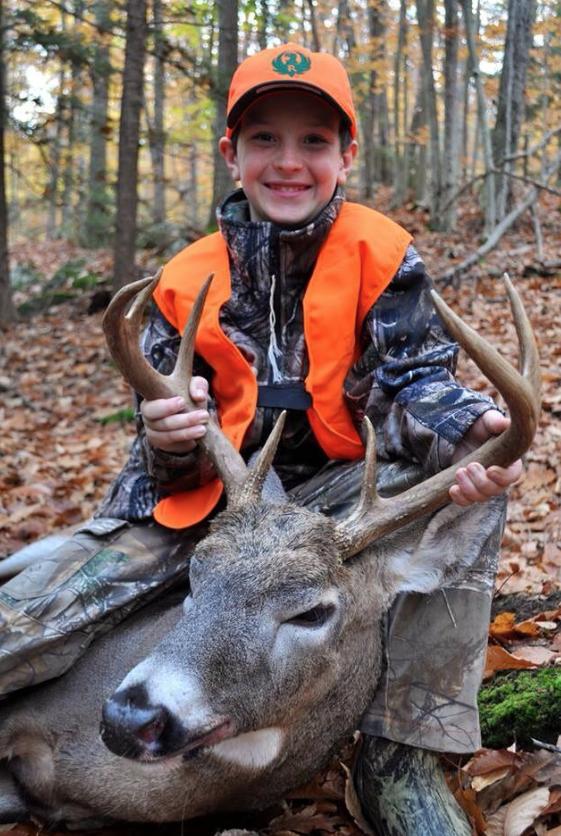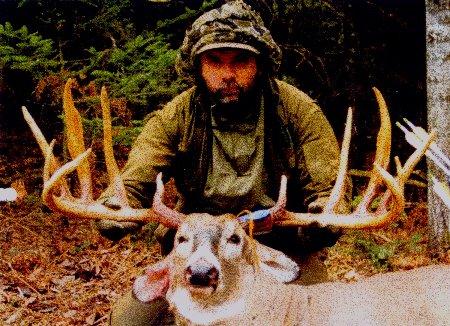“Age wrinkles the body; quitting wrinkles the soul.” — Douglas MacArthur
Recently, I polled hundreds of people on reasons adults hang up their hunting gear. After receiving responses from hundreds of past and present hunters, and dozens of unique responses, it became apparent just how many reasons and excuses there are for people who choose to quit deer hunting.
Most of the following reasons aren’t good ones to stop hunting. If people want to hunt, they’ll find a way. If they don’t, they’ll find a reason. So, while we aren’t here to help people find excuses or reasons, we are trying to educate on why people fall away from the fold. You must understand where a person’s head is to help bring them back. With that, here are 50 reasons why adults quit deer hunting.

1. Money gets tight.
One of the leading causes of hunters quitting hunting is money. The purchasing power of the dollar continues to decline. Inflation is driving the cost of goods and services higher. And wages are stagnant. That translates to decreased disposable income and fewer dollars to spend on hunting. Still, you can hunt on a budget.
2. No one to take them.
Some adults won’t or don’t want to go unless someone takes them. This is especially true for inexperienced hunters. Once there is no one to take them afield, they no longer have a desire to go. Generally, this is due to a lack of confidence, loss of camaraderie, etc. A lack of willing mentors is a big problem.
3. No one to take with them.
On the flip side, other hunters quit going because they can’t find anyone who is willing to go with them. The circumstances are the same as the previous reason, only that it’s a shortage of mentees, not mentors. Of course, these are very situational realities that can change over time.
4. A lack of time.
Speaking of time, some people have very little of it. At least, very little that’s disposable. We all have the same amount of it. Some just have more free time than others. As a hobby, deer hunting can easily take a backseat.
5. Stocked grocery stores.
It’s true, many hunters in America no longer need to hunt to get food. Modern civilization is designed in a manner that food is readily accessible. That doesn’t mean hunters don’t want to harvest their own food, though. And if the 2020 meat shortage proved anything, it’s that sometimes there’s still a need for humans to retain the skills necessary to fend for themselves.
6. Taking on new hobbies.
Other hobbies commonly chip away at the time hunters spend in the woods. Sports that people play, such as basketball and golf, and all of those that people watch, such as football and baseball, can certainly impact how often people go to the woods, or if they go at all. Any number of other things can do the same.
7. Because they have kids.
One of the most common factors in people who quit hunting is having kids. As someone with a young child, I understand the challenges. It’s a major time requirement. Having multiple kids only compounds that reality.

8. Other family duties.
Additional family-related things, such as caring for parents, grandparents, or others, can cause a decline as well. Family duties are very important, and sometimes, people have so much going on that they can’t seem to find the time to hit the woods.
9. Increasing work expectations and hours.
Work is a major reason people quit hunting. As many employers become more demanding, employees have less free time. When this happens, hobbies are usually the first things cut from the schedule.
10. Spouses who don’t understand.
It isn’t uncommon for hunters to stop hunting because their spouse is either not understanding of hunting, or they don’t approve of the time spent doing it. This can be discouraging for the partner who hunts.
11. Agricultural development.
As large agricultural operations continue to grow, more ground is cleared to make room for those expansions. That’s a real problem, and once vital bedding, escape and security cover is gone, so are the deer. As a result, hunters quit deer hunting.
12. Urban sprawl.
Sticking with the habitat degradation theme, cities and towns are doing the same thing. As these municipalities continue to expand, deer lose their homes, and people continue losing hunting grounds. Thus, a reduction in hunters.
13. Urban living.
As more people move to live in cities, they find it harder to make the long drives to areas that offer quality hunting opportunities. Motoring two or three hours to a piece of ground doesn’t seem worth it to some people.
14. Losing places to hunt.
Losing a piece of ground is never easy to accept. It’s part of hunting, though — for everyone. But, when it’s an extra special place, it seems to have enough sway to cause some hunters to quit hunting.
15. Expensive lease prices.
Rising costs to lease hunting land is another concern. In some states, prices per acre are rapidly outpacing middle-class incomes. For now, that doesn’t seem to be changing.

16. Increasing gear prices.
Likewise, the cost of hunting gear continues to rise. While gun and bow manufacturers continue to offer budget-based options at lower price points, the bulk of products are continually rising in cost. That’s discouraging to hunters, especially when they can’t afford the stuff they really want.
Read: Tips for Buying a Used Bow
Watch: DIY Sprayer for Deer Food Plots
17. Not enough public lands nearby.
In many areas, public land is readily available. In some cases, it’s even abundant. But other locations have very little of it. That’s a big problem for some hunters.
18. Increased competition.
Despite the 2020 outlier, overall, agencies are telling a tale of reduced hunter numbers. Still, it seems that competition for both private and public lands is at all-time highs. It’s not impossible to find a piece of ground to yourself, but it isn’t easy, either.
19. False perceptions.
Some hunters just don’t see things for what they really are. They think hunting is easy, or that it’s something that it isn’t. And thus, it doesn’t do for them what they thought it would.
20. A need for technology.
Some people just can’t stand to be away from modern inventions, which is the antithesis of hunting and the outdoors. Therefore, some don’t stay in the outdoors and instead remain indoors.

21. Arbitrary and convoluted hunting laws.
As bad as it sounds, some states have terrible hunting laws. Some are extremely arbitrary and seem completely and irrelevantly random. Case in point? Trail camera bans. Others are so convoluted that hunters can’t make heads or tails of what they can or can’t do. And yes, that does cause people to quit hunting.
22. Wholesale changes to hunting regulations.
Sometimes, states make major changes to their regulations to wipe out entire practices or ways of life. Take Arizona’s recent statewide, all-inclusive ban on trail cameras, for example. Look at how dog deer hunting has declined throughout eastern states, too. It’s easy to see.
23. Other outdoor opportunities.
It’s also possible for deer hunters to get sucked into other opportunities that the outdoors has to offer. Bigger game, such as elk and moose, smaller game, such as turkey and coyotes, and even bass fishing, all have an ability to pull people from the deer woods.
24. Unrealistic expectations.
Sometimes, it’s as simple as thinking too highly of a situation. For example, under most circumstances, it isn’t logical to expect a 200-inch deer in South Carolina. That’s an extreme example, obviously, but you get the picture. People have unrealistic expectations for the situations they are in, effectively leading to disappointment.
25. Possessiveness over free-range deer.
Some people get possessive over the deer they hunt. There have been instances where hunters stop hunting due to other people’s attitude, as well as having an attitude about specific deer themselves. Neither is good.
26. Too many deer “need another year.”
While whitetail management is a good thing, it’s important to keep it in check. Moderation in important for all things, even those that are good. Too much water will kill you. Just as too much management can kill hunters’ enthusiasm.
27. Inches over memories.
This is similar, but different. Too much emphasis on management can take away the fun. Just as too much focus on antler size diminishes the other reasons we hunt, including for meat, memories, camaraderie and more.
28. Bullying amongst hunters.
It’s common in many aspects of life, and it’s sad. Bullying has no place in the world — anywhere. That goes for hunting, too. Unfortunately, it causes some people to stop hunting.
29. Losing a deer.
Shooting and losing any deer can leave a bad taste in a hunter’s mouth. So much so, in fact, that some hunters report quitting after a really bad experience with this. Not to make light of that, but eventually, it happens to everyone.
30. Worsening deer populations and age structures.
As overall deer populations and herd age structures decline, hunters tend to become disheartened. When it gets to a certain point, it can lead to a level of discouragement that causes hunters to completely lose interest.
31. The disappearance of the mystery in deer hunting.
Technology has greatly changed hunting throughout the past 20-30 years. Each season, this seems to continue at exponential rates. The trail camera is a prime example. This item alone has taken much of the mystery out of deer hunting. Before, you wondered what was on a given property. Now, if cameras are used correctly, you almost always know.

32. Increased disease prevalence.
In the past, hunters rarely dealt with disease in whitetails. Today, it’s commonplace. From epizootic hemorrhagic disease (EHD) to chronic wasting disease (CWD), hunters are seeing declining deer populations in many areas. This too is disheartening.
33. Contracting Alpha-Gal Syndrome.
A common disease received from Lone Star tick bites, Alpha-Gal Syndrome is a very real problem that’s spreading throughout the nation. Everyone reacts differently, but it oftentimes causes a red-meat allergy, preventing them from eating meat, including venison. Levels of impact vary, but it’s no small thing for those who have it. Fortunately, it can dissipate or completely go away in time.
34. Macho men making it a macho sport.
Hunting isn’t macho. But some try to make it seem that way due to their egotistical tendencies. Unfortunately, this can deter new hunters, even causing them to quit.
35. Widespread sissiness.
On the flipside, hunting isn’t easy, either. The elements can be grueling, and we’re here to kill animals and put food on the table. That isn’t to be taken lightly. And so, some people choose not to hunt.
36. Social media backlash.
As digital and social media continue rising in popularity, hunters continue to see more pushback from anti-hunters. That can be mentally taxing for some, and at times, they cave to the pressure.
37. Not feeling safe.
Some people don’t like the idea of walking alone in the dark, other hunters with guns nearby, sharing the woods with large predators, walking miles into the backcountry, climbing into trees, etc. While things happen, these things and more are perceived as threats much greater than they are, though.
38. Hunter harassment.
It’s extremely rare, but some hunters experience violence, whether it be anti-hunters or other hunters in the field. This can come in the form of threats, or physical violence. I’ve received both. Either way, it’s never OK.
39. Experiencing treestand falls.
Hunters are more likely to be injured from a treestand fall than any other risk in hunting. Experiencing such trauma can shake a person, and it’s caused many hunters to hang up their gear.
40. The outdoor industry.
The hunting industry has done a lot of good. It’s also done some harm. While I think it’s caused a net gain in hunters, some have no doubt quit hunting due to negative aspects of the commercial industry.
41. Going to war.
A commonly overlooked reason is hunters who go off to war. Sometimes, these soldiers experience very traumatic events, which cause them to be unable to shoot or be around firearms without negative emotions and reactions. Fortunately, there’s bowhunting. And don’t forget the therapy it provides to some veterans.
42. Hunting buddies passing away.
Many hunters hunt for the camaraderie with family and friends. The time spent with loved ones is a major reason they do what they do. When that’s lost, it can take a toll.

43. Loss of tradition and heritage.
Likewise, a loss of a tradition or heritage-based way of doing things can negatively impact hunters’ and their thoughts about hunting. When this happens, it can lead to a reduced desire to go afield.
44. Declining health.
One of the saddest things anyone can experience, but everyone does, is declining health. It keeps people from doing the things they used to do, and the things they love, including hunting. It’s difficult to climb treestands and hike mountains when injuries and illnesses make it hard to do so. That’s when you start using ground blinds.
45. Aging out.
As people get older, they oftentimes stop doing the things they did before, whether they have health problems or not. They just mellow out and stop doing what used to interest them. I can’t explain it, but it happens.
46. Rampant laziness.
Some people just don’t want to put in the work. Hunting can be as laid back or as laborious as you want it to be. But it takes work, regardless of where one falls on that spectrum. That doesn’t jive with laziness.
47. Losing the “heart thump.”
Some hunters report losing the excitement that seeing a deer — even a big buck — provides. The interest fades, and the rush just isn’t there anymore.
48. No longer a challenge.
Hunters who become very proficient at what they do can sometimes lose interest due to decreased challenges. This is generally when they start using alternative weapons, such as traditional gear.
49. Tired of killing.
During the polling period, a few hunters even reported tiring of killing animals. Not that they disapproved of hunting. They still very much supported it. They’d just grown softer with age. And so, they only desired to share the outdoors with others, rather than taking it for themselves.

50. Because they die.
It might be obvious, but we all die. And when that happens, it gets harder to draw a bow or pull a trigger. And so, a hunter is lost. Half-hearted jokes aside, this is becoming a very real issue, especially as the baby boomer generation begins exiting. They compose a major portion of the hunting population.
In reflection, few reasons are good enough to quit deer hunting. The rest are mostly excuses. Regardless, the next time you hear one of these, do your best to bring them back into hunting. Go against the grain. The future depends on it.
2020 Vision
While resources have reported declining hunter numbers throughout the past couple of decades, 2020 realized an increase in overall hunter numbers. That was reportedly due to COVID-19. People had more time on their hands, and they also wanted to bring in fresh venison due to commercial meat shortages. Will these trends continue in 2021? Time will tell.
D+DH In-Depth is our premium, comprehensive corner on America’s No. 1 game animal. In this graduate-level course, we’ll teach you about deer biology, behavior, and ultimately, how to become a better hunter. Want to be the first to get our premium content? Become a D+DH Insider for FREE!



